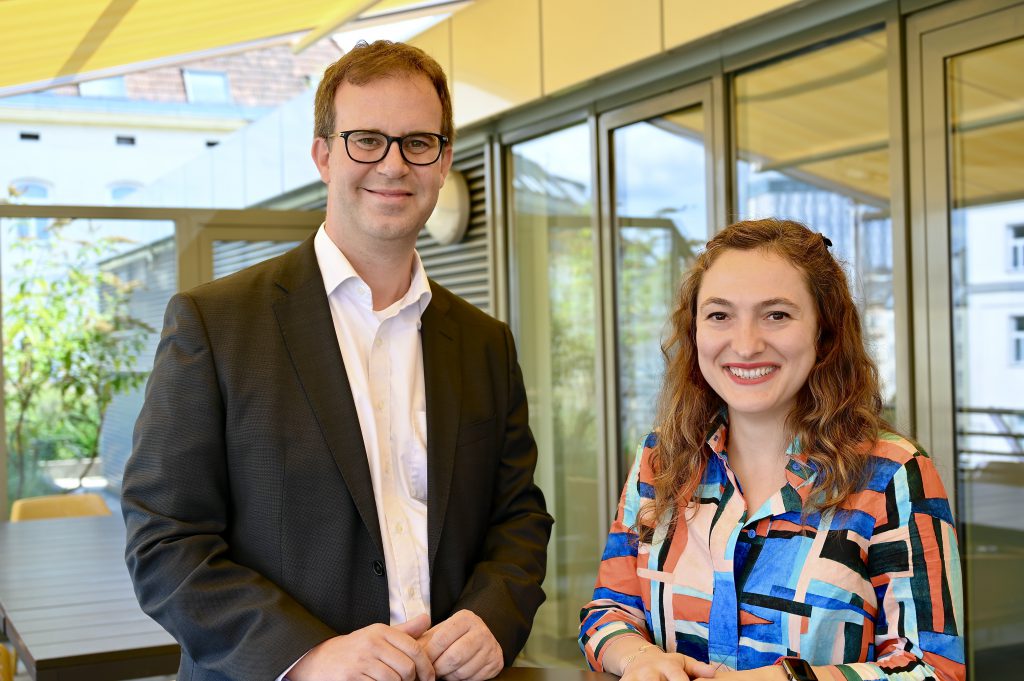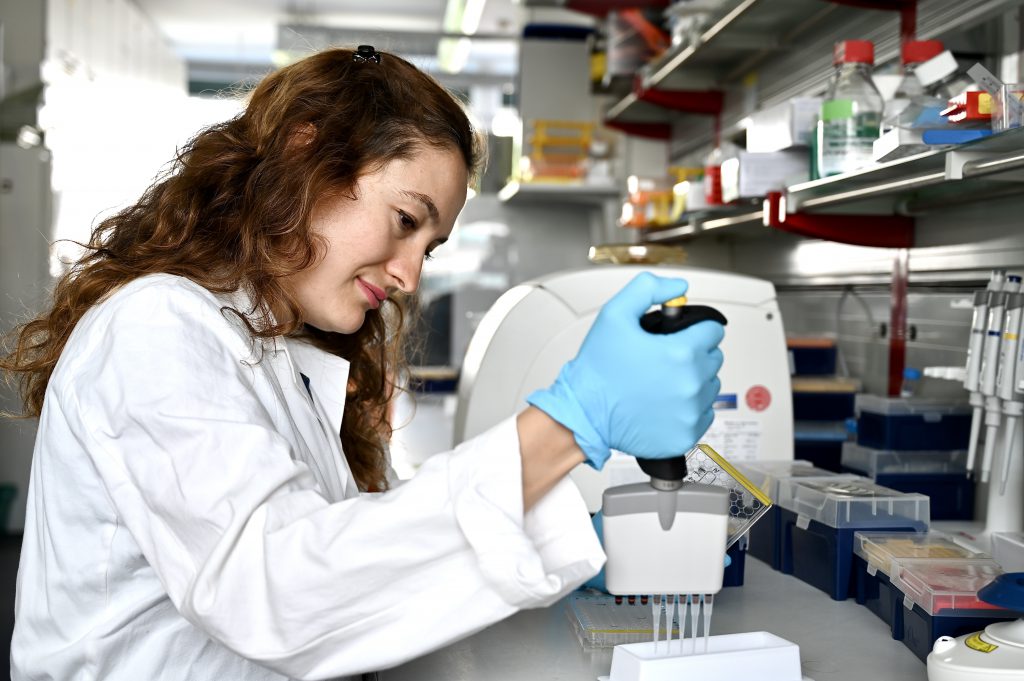Gene Mutation in the Immune System: Anti-Diabetes Drugs Make Immune Cells More Effective Again
(Vienna, 31.08.2023) T cells are an essential component of the immune system – they fight foreign structures such as bacteria and viruses or cancer-related changes in cells. This defense reaction requires energy. Scientists led by the St. Anna Children’s Cancer Research Institute and the Marmara University Istanbul have now shown for the first time that a defect in the gene for the transcription factor NFATC1 leads to an immune defect with a disruption of metabolism in T lymphocytes. They were also able to show in a cell culture model that this metabolic disturbance of the immune cells was improved by the administration of established anti-diabetic drugs. The study has now been published in the prestigious journal Blood.
Immune metabolism is a central topic of research. Which nutrients are absorbed and how they are processed is determined not only by the cell, but also by its function. T cells must be able to process glucose (sugar) to do their vital job, the response to pathogens or cancer cells. If this metabolism is disturbed, the performance of this function will be insufficient. Scientists under the lead of the St. Anna Children’s Cancer Research Institute (St. Anna CCRI) and the Marmara University Istanbul have now been able to show for the first time that a mutation of the transcription factor NFATC1, which is important for the activation of T cells, causes a previously unknown inborn immune defect: The affected patients suffer from recurrent infections and inflammations.

The first author of the study, which has now been published in the journal Blood, Sevgi Köstel Bal, MD, PhD, a postdoctoral researcher at the St. Anna CCRI in the group of Kaan Boztug, MD, speaks of a rare disease, but one that can be a model for immune metabolism and deliberate intervention in it. It has been seen very clearly, she says, that a T cell needs energy. However, if glucose cannot be processed, the human body becomes ill. One can picture this in terms of a car that doesn’t run optimally because the fuel can’t be processed properly. By administering an anti-diabetic drug that has been known for decades, such as metformin or rosiglitazone, “the immune cells increasingly resorted to fats as an energy source,” says Sevgi Köstel Bal. “So in a way we trained the immune cells.”
Training the cells on fat
The drugs are usually administered in type 2 diabetes to facilitate the uptake of insulin to convert carbohydrates into energy. “We believe there is huge potential in the field of immune metabolism for improving immune cell function for some defects by targeting immune metabolism. In our study, we were not only able to discover a new immune defect, but more importantly, we were able to show that the function of the patient’s immune cells could be improved by normalizing the metabolism in the immune cells, even though it is an inborn immune defect.,” said Kaan Boztug, last author of the study, Scientific Director at the St. Anna CCRI, Professor at the Medical University of Vienna and Adjunct Principal Investigator at the CeMM Research Center for Molecular Medicine of the Austrian Academy of Sciences (ÖAW).
Whether the NFATC1 mutation, like many other inborn immune system gene defects, increases the risk of cancer in humans remains to be definitively determined, Boztug says. The question of whether the defect can cause an autoimmune reaction, i.e. the destruction of the body’s own cells by the human body, has also not yet been answered. In the mouse model, this reaction has indeed already been demonstrated. Research is therefore still needed to understand the NFATC1 gene defect and its effects in further detail. This is also the view of Safa Baris of the Marmara University, co-last author of the study, Professor of Pediatric Allergy and Immunology. He led the clinical care of the patients and was critically involved in the scientific collaboration between Istanbul and Vienna.
In the future the results of the Blood-study could indeed lead to personalized therapies that target the molecular causes of immune diseases specifically – with the help of immunomodulation. Deliberately influencing the immune system with drugs to fine-tune without causing an overreaction or suppression would be a significant advance in the treatment of rare diseases like this, Boztug says.

———–
Publication
Biallelic NFATC1 mutations cause an inborn error of immunity with impaired CD8+ T-cell function and perturbed glycolysis
Köstel Bal S, Giuliani S, Block J, Repiscak P, Hafemeister C, Shahin T, Nurhan K, Ransmayr B, Miao Y, Van de Wetering C, Frohne A, Jimenez Heredia R, Schuster M, Zoghi S, Hertlein V, Thian M, Bykov A, Babayeva R, Bilgic Eltan S, Karakoc-Aydiner E, Shaw LE, Chowdhury I, Varjosalo M, Argüello RJ, Farlik M, Ozen A, Serfling E, Loïc Dupré L, Bock C, Halbritter F, Hannich JT, Castanon I, Kraakman MJ, Baris S#, Boztug K#
#, contributed equally to this work Blood, August 31, 2023
DOI: 10.1182/blood.2022018303
Funding
This study has been supported by the European Research Council Consolidator Grant iDysChart (ERC grant agreement number: 820074). S.B. has been supported by The Scientific and Technological Research Council of Turkey (318S202). C.H. and F.H. are supported by funding from the Alex’s Lemonade Stand Foundation for Childhood Cancer (20-17258). M.J.K. has been supported by an FWF Lise Meitner Postdoctoral Fellowship (M2013). J.B. has been supported by a DOC Fellowship of the Austrian Academy of Sciences (25590). C.v.d.W. has been supported by a Postdoctoral Fellowship of the PT Engelhorn Foundation. B.R. has been supported by PhD fellowship from the FFG (879254)